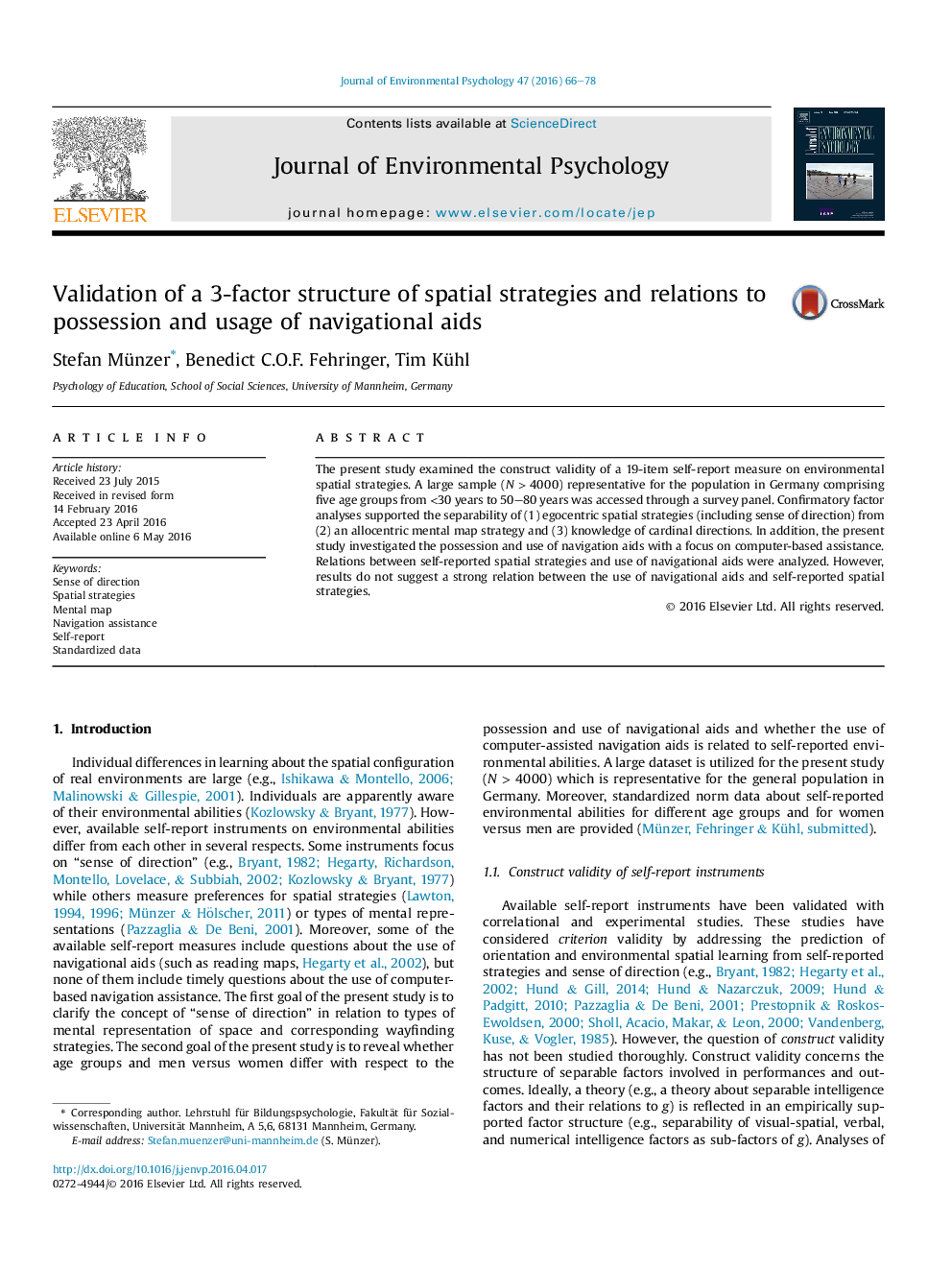| Article ID | Journal | Published Year | Pages | File Type |
|---|---|---|---|---|
| 7245552 | Journal of Environmental Psychology | 2016 | 13 Pages |
Abstract
The present study examined the construct validity of a 19-item self-report measure on environmental spatial strategies. A large sample (NÂ >Â 4000) representative for the population in Germany comprising five age groups from <30 years to 50-80 years was accessed through a survey panel. Confirmatory factor analyses supported the separability of (1) egocentric spatial strategies (including sense of direction) from (2) an allocentric mental map strategy and (3) knowledge of cardinal directions. In addition, the present study investigated the possession and use of navigation aids with a focus on computer-based assistance. Relations between self-reported spatial strategies and use of navigational aids were analyzed. However, results do not suggest a strong relation between the use of navigational aids and self-reported spatial strategies.
Related Topics
Social Sciences and Humanities
Psychology
Applied Psychology
Authors
Stefan Münzer, Benedict C.O.F. Fehringer, Tim Kühl,
